|
Geant4
10.03.p03
|
|
Geant4
10.03.p03
|
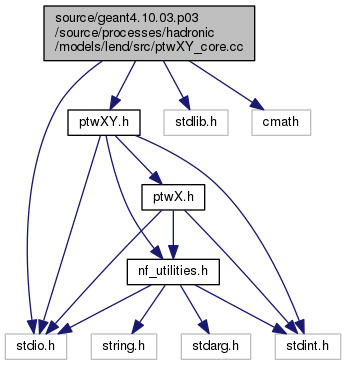
Go to the source code of this file.
Functions | |
| static void | ptwXY_initialOverflowPoint (ptwXYOverflowPoint *overflowPoint, ptwXYOverflowPoint *prior, ptwXYOverflowPoint *next) |
| static nfu_status | ptwXY_mergeFrom (ptwXYPoints *ptwXY, int incY, int length, double *xs, double *ys) |
| static int | ptwXY_mergeCompareFunction (void const *x1p, void const *x2p) |
| ptwXYPoints * | ptwXY_new (ptwXY_interpolation interpolation, ptwXY_interpolationOtherInfo const *interpolationOtherInfo, double biSectionMax, double accuracy, int64_t primarySize, int64_t secondarySize, nfu_status *status, int userFlag) |
| nfu_status | ptwXY_setup (ptwXYPoints *ptwXY, ptwXY_interpolation interpolation, ptwXY_interpolationOtherInfo const *interpolationOtherInfo, double biSectionMax, double accuracy, int64_t primarySize, int64_t secondarySize, int userFlag) |
| ptwXYPoints * | ptwXY_create (ptwXY_interpolation interpolation, ptwXY_interpolationOtherInfo const *interpolationOtherInfo, double biSectionMax, double accuracy, int64_t primarySize, int64_t secondarySize, int64_t length, double const *xy, nfu_status *status, int userFlag) |
| ptwXYPoints * | ptwXY_createFrom_Xs_Ys (ptwXY_interpolation interpolation, ptwXY_interpolationOtherInfo const *interpolationOtherInfo, double biSectionMax, double accuracy, int64_t primarySize, int64_t secondarySize, int64_t length, double const *Xs, double const *Ys, nfu_status *status, int userFlag) |
| nfu_status | ptwXY_copy (ptwXYPoints *dest, ptwXYPoints *src) |
| ptwXYPoints * | ptwXY_clone (ptwXYPoints *ptwXY, nfu_status *status) |
| ptwXYPoints * | ptwXY_cloneToInterpolation (ptwXYPoints *ptwXY, ptwXY_interpolation interpolationTo, nfu_status *status) |
| ptwXYPoints * | ptwXY_slice (ptwXYPoints *ptwXY, int64_t index1, int64_t index2, int64_t secondarySize, nfu_status *status) |
| ptwXYPoints * | ptwXY_xSlice (ptwXYPoints *ptwXY, double xMin, double xMax, int64_t secondarySize, int fill, nfu_status *status) |
| ptwXYPoints * | ptwXY_xMinSlice (ptwXYPoints *ptwXY, double xMin, int64_t secondarySize, int fill, nfu_status *status) |
| ptwXYPoints * | ptwXY_xMaxSlice (ptwXYPoints *ptwXY, double xMax, int64_t secondarySize, int fill, nfu_status *status) |
| ptwXY_interpolation | ptwXY_getInterpolation (ptwXYPoints *ptwXY) |
| char const * | ptwXY_getInterpolationString (ptwXYPoints *ptwXY) |
| nfu_status | ptwXY_getStatus (ptwXYPoints *ptwXY) |
| int | ptwXY_getUserFlag (ptwXYPoints *ptwXY) |
| void | ptwXY_setUserFlag (ptwXYPoints *ptwXY, int userFlag) |
| double | ptwXY_getAccuracy (ptwXYPoints *ptwXY) |
| double | ptwXY_setAccuracy (ptwXYPoints *ptwXY, double accuracy) |
| double | ptwXY_getBiSectionMax (ptwXYPoints *ptwXY) |
| double | ptwXY_setBiSectionMax (ptwXYPoints *ptwXY, double biSectionMax) |
| nfu_status | ptwXY_reallocatePoints (ptwXYPoints *ptwXY, int64_t size, int forceSmallerResize) |
| nfu_status | ptwXY_reallocateOverflowPoints (ptwXYPoints *ptwXY, int64_t size) |
| nfu_status | ptwXY_coalescePoints (ptwXYPoints *ptwXY, int64_t size, ptwXYPoint *newPoint, int forceSmallerResize) |
| nfu_status | ptwXY_simpleCoalescePoints (ptwXYPoints *ptwXY) |
| nfu_status | ptwXY_clear (ptwXYPoints *ptwXY) |
| nfu_status | ptwXY_release (ptwXYPoints *ptwXY) |
| ptwXYPoints * | ptwXY_free (ptwXYPoints *ptwXY) |
| int64_t | ptwXY_length (ptwXYPoints *ptwXY) |
| int64_t | ptwXY_getNonOverflowLength (ptwXYPoints const *ptwXY) |
| nfu_status | ptwXY_setXYData (ptwXYPoints *ptwXY, int64_t length, double const *xy) |
| nfu_status | ptwXY_setXYDataFromXsAndYs (ptwXYPoints *ptwXY, int64_t length, double const *x, double const *y) |
| nfu_status | ptwXY_deletePoints (ptwXYPoints *ptwXY, int64_t i1, int64_t i2) |
| ptwXYPoint * | ptwXY_getPointAtIndex (ptwXYPoints *ptwXY, int64_t index) |
| ptwXYPoint * | ptwXY_getPointAtIndex_Unsafely (ptwXYPoints *ptwXY, int64_t index) |
| nfu_status | ptwXY_getXYPairAtIndex (ptwXYPoints *ptwXY, int64_t index, double *x, double *y) |
| ptwXY_lessEqualGreaterX | ptwXY_getPointsAroundX (ptwXYPoints *ptwXY, double x, ptwXYOverflowPoint *lessThanEqualXPoint, ptwXYOverflowPoint *greaterThanXPoint) |
| ptwXY_lessEqualGreaterX | ptwXY_getPointsAroundX_closeIsEqual (ptwXYPoints *ptwXY, double x, ptwXYOverflowPoint *lessThanEqualXPoint, ptwXYOverflowPoint *greaterThanXPoint, double eps, int *closeIsEqual, ptwXYPoint **closePoint) |
| nfu_status | ptwXY_getValueAtX (ptwXYPoints *ptwXY, double x, double *y) |
| nfu_status | ptwXY_setValueAtX (ptwXYPoints *ptwXY, double x, double y) |
| nfu_status | ptwXY_setValueAtX_overrideIfClose (ptwXYPoints *ptwXY, double x, double y, double eps, int override) |
| nfu_status | ptwXY_mergeFromXsAndYs (ptwXYPoints *ptwXY, int length, double *xs, double *ys) |
| nfu_status | ptwXY_mergeFromXYs (ptwXYPoints *ptwXY, int length, double *xys) |
| nfu_status | ptwXY_appendXY (ptwXYPoints *ptwXY, double x, double y) |
| nfu_status | ptwXY_setXYPairAtIndex (ptwXYPoints *ptwXY, int64_t index, double x, double y) |
| nfu_status | ptwXY_getSlopeAtX (ptwXYPoints *ptwXY, double x, const char side, double *slope) |
| double | ptwXY_getXMinAndFrom (ptwXYPoints *ptwXY, ptwXY_dataFrom *dataFrom) |
| double | ptwXY_getXMin (ptwXYPoints *ptwXY) |
| double | ptwXY_getXMaxAndFrom (ptwXYPoints *ptwXY, ptwXY_dataFrom *dataFrom) |
| double | ptwXY_getXMax (ptwXYPoints *ptwXY) |
| double | ptwXY_getYMin (ptwXYPoints *ptwXY) |
| double | ptwXY_getYMax (ptwXYPoints *ptwXY) |
Variables | |
| static char const | linLinInterpolationString [] = "linear,linear" |
| static char const | linLogInterpolationString [] = "linear,log" |
| static char const | logLinInterpolationString [] = "log,linear" |
| static char const | logLogInterpolationString [] = "log,log" |
| static char const | flatInterpolationString [] = "flat" |
| nfu_status ptwXY_appendXY | ( | ptwXYPoints * | ptwXY, |
| double | x, | ||
| double | y | ||
| ) |
Definition at line 1062 of file ptwXY_core.cc.

| nfu_status ptwXY_clear | ( | ptwXYPoints * | ptwXY | ) |
Definition at line 536 of file ptwXY_core.cc.

| ptwXYPoints* ptwXY_clone | ( | ptwXYPoints * | ptwXY, |
| nfu_status * | status | ||
| ) |
Definition at line 208 of file ptwXY_core.cc.

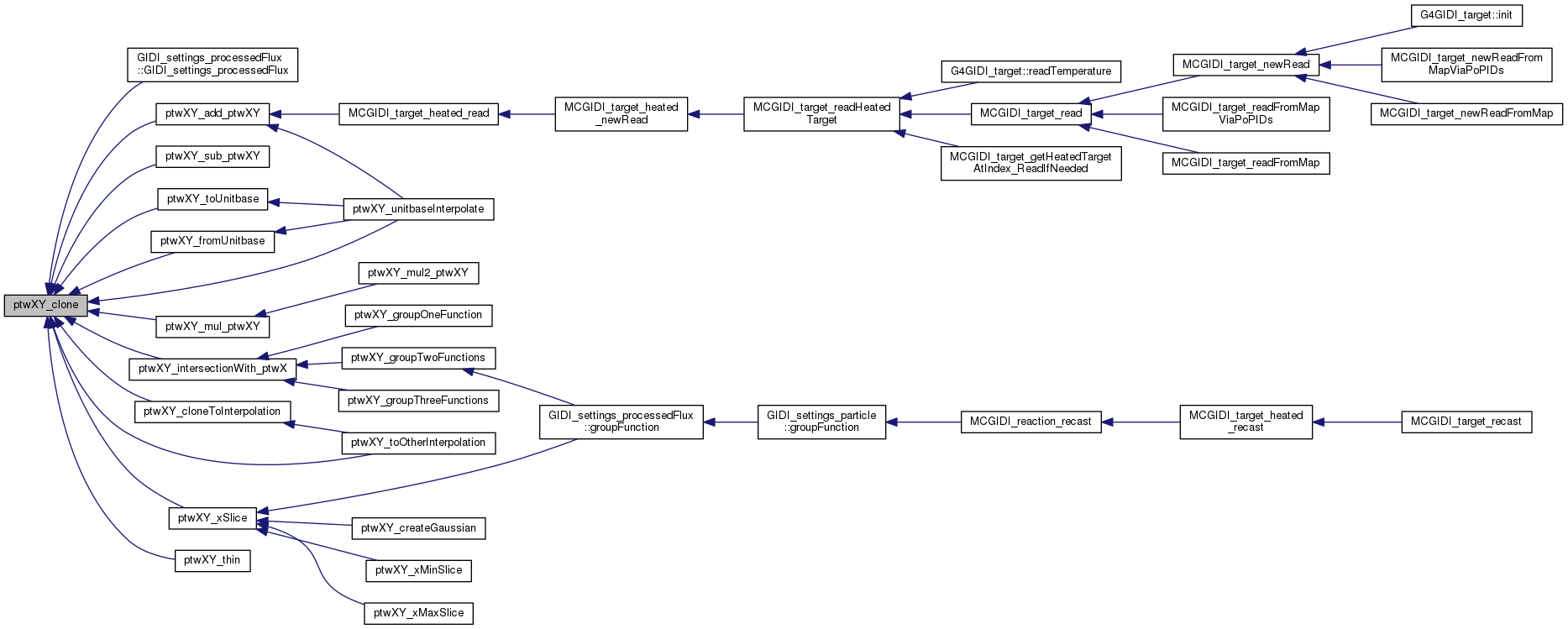
| ptwXYPoints* ptwXY_cloneToInterpolation | ( | ptwXYPoints * | ptwXY, |
| ptwXY_interpolation | interpolationTo, | ||
| nfu_status * | status | ||
| ) |
Definition at line 215 of file ptwXY_core.cc.


| nfu_status ptwXY_coalescePoints | ( | ptwXYPoints * | ptwXY, |
| int64_t | size, | ||
| ptwXYPoint * | newPoint, | ||
| int | forceSmallerResize | ||
| ) |
Definition at line 469 of file ptwXY_core.cc.

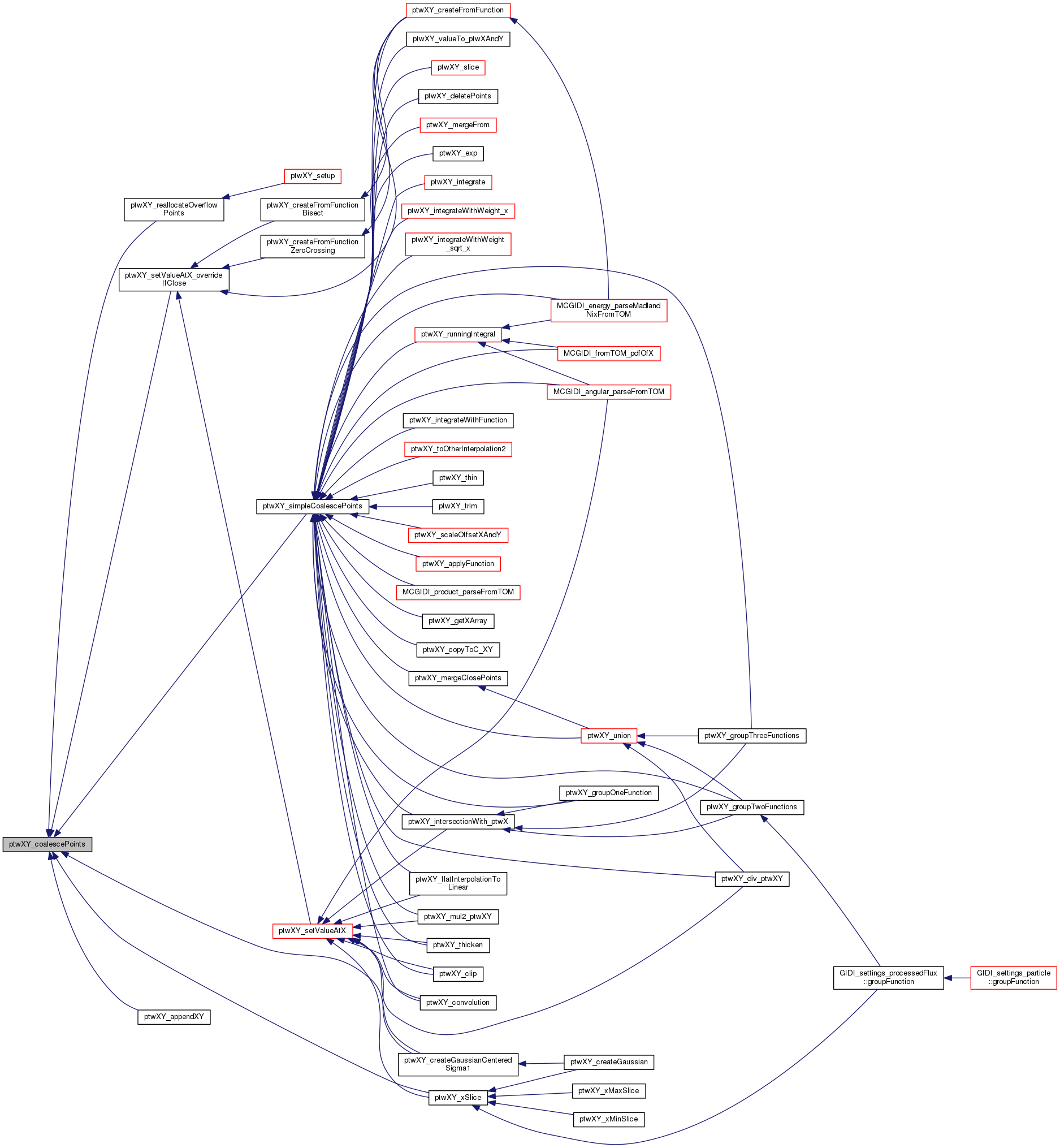
| nfu_status ptwXY_copy | ( | ptwXYPoints * | dest, |
| ptwXYPoints * | src | ||
| ) |
Definition at line 148 of file ptwXY_core.cc.
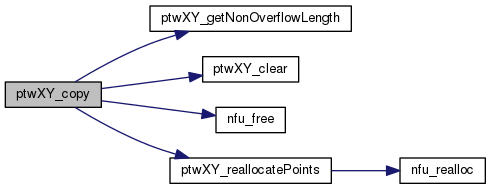
| ptwXYPoints* ptwXY_create | ( | ptwXY_interpolation | interpolation, |
| ptwXY_interpolationOtherInfo const * | interpolationOtherInfo, | ||
| double | biSectionMax, | ||
| double | accuracy, | ||
| int64_t | primarySize, | ||
| int64_t | secondarySize, | ||
| int64_t | length, | ||
| double const * | xy, | ||
| nfu_status * | status, | ||
| int | userFlag | ||
| ) |
Definition at line 108 of file ptwXY_core.cc.
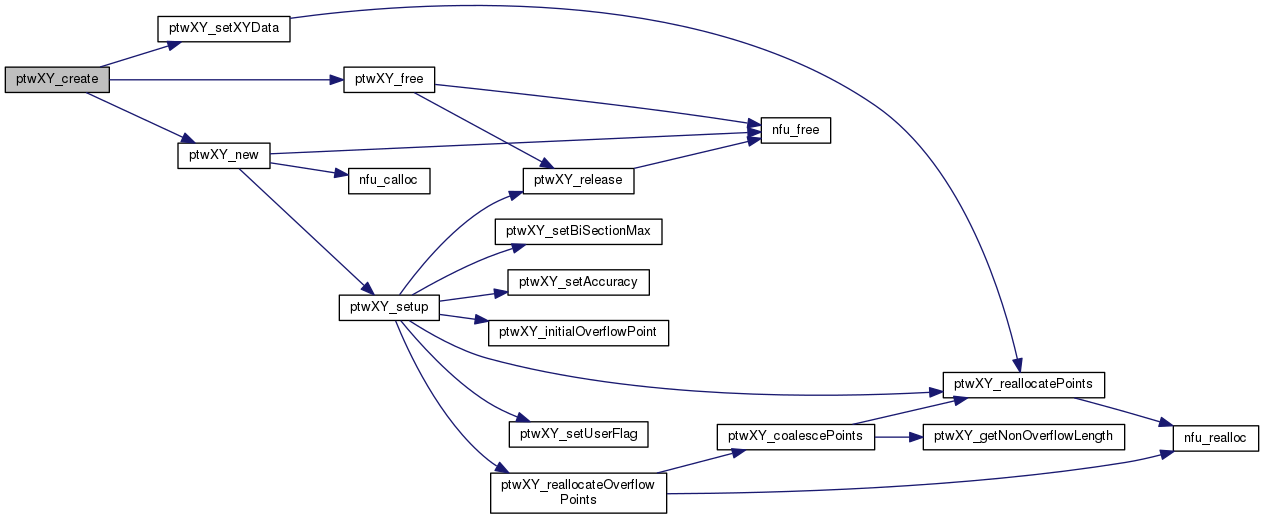

| ptwXYPoints* ptwXY_createFrom_Xs_Ys | ( | ptwXY_interpolation | interpolation, |
| ptwXY_interpolationOtherInfo const * | interpolationOtherInfo, | ||
| double | biSectionMax, | ||
| double | accuracy, | ||
| int64_t | primarySize, | ||
| int64_t | secondarySize, | ||
| int64_t | length, | ||
| double const * | Xs, | ||
| double const * | Ys, | ||
| nfu_status * | status, | ||
| int | userFlag | ||
| ) |
Definition at line 126 of file ptwXY_core.cc.

| nfu_status ptwXY_deletePoints | ( | ptwXYPoints * | ptwXY, |
| int64_t | i1, | ||
| int64_t | i2 | ||
| ) |
Definition at line 660 of file ptwXY_core.cc.

| ptwXYPoints* ptwXY_free | ( | ptwXYPoints * | ptwXY | ) |
Definition at line 574 of file ptwXY_core.cc.

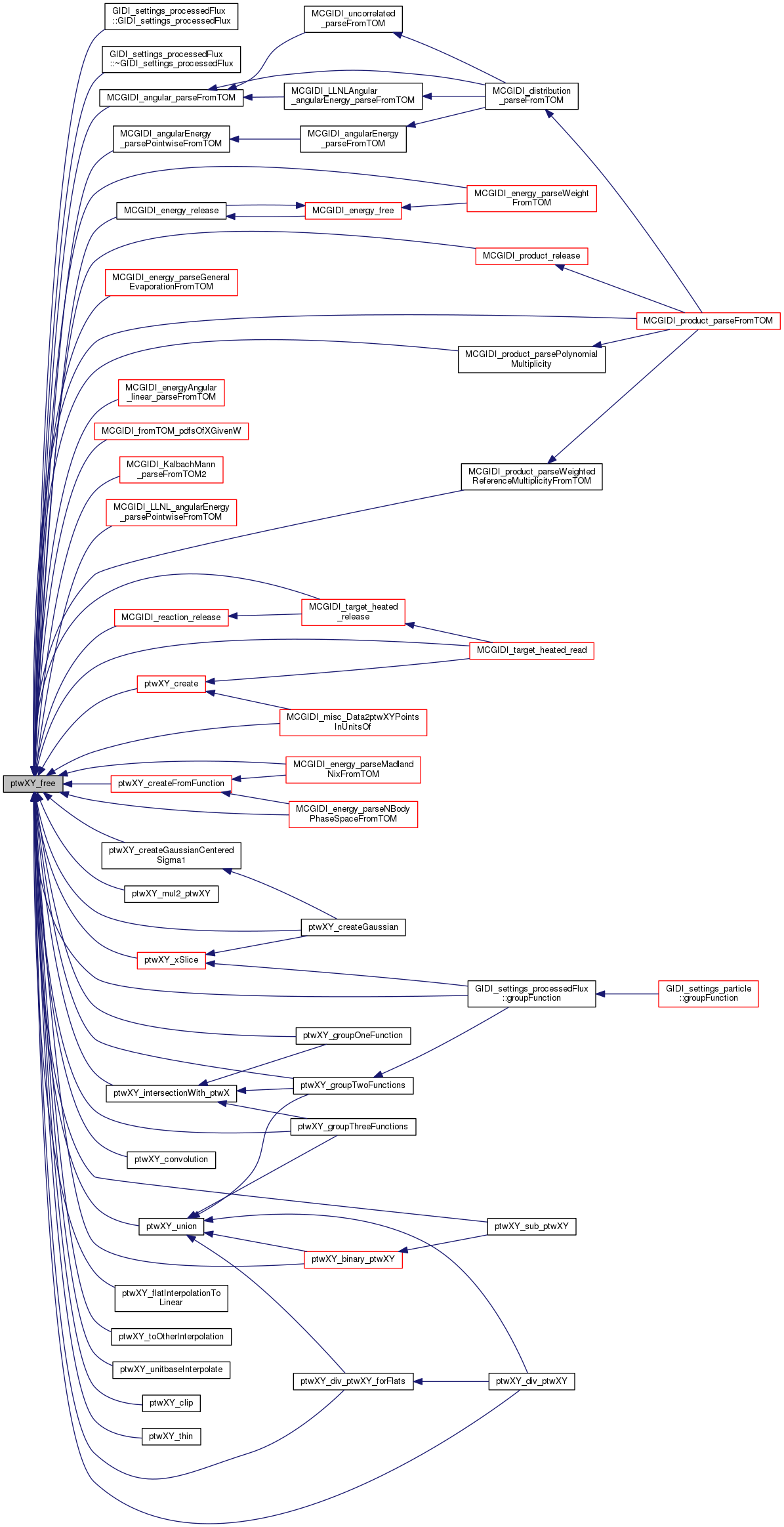
| double ptwXY_getAccuracy | ( | ptwXYPoints * | ptwXY | ) |
Definition at line 372 of file ptwXY_core.cc.
| double ptwXY_getBiSectionMax | ( | ptwXYPoints * | ptwXY | ) |
Definition at line 390 of file ptwXY_core.cc.
| ptwXY_interpolation ptwXY_getInterpolation | ( | ptwXYPoints * | ptwXY | ) |
| char const* ptwXY_getInterpolationString | ( | ptwXYPoints * | ptwXY | ) |
Definition at line 344 of file ptwXY_core.cc.
| int64_t ptwXY_getNonOverflowLength | ( | ptwXYPoints const * | ptwXY | ) |
| ptwXYPoint* ptwXY_getPointAtIndex | ( | ptwXYPoints * | ptwXY, |
| int64_t | index | ||
| ) |
Definition at line 675 of file ptwXY_core.cc.


| ptwXYPoint* ptwXY_getPointAtIndex_Unsafely | ( | ptwXYPoints * | ptwXY, |
| int64_t | index | ||
| ) |
Definition at line 684 of file ptwXY_core.cc.

| ptwXY_lessEqualGreaterX ptwXY_getPointsAroundX | ( | ptwXYPoints * | ptwXY, |
| double | x, | ||
| ptwXYOverflowPoint * | lessThanEqualXPoint, | ||
| ptwXYOverflowPoint * | greaterThanXPoint | ||
| ) |
Definition at line 710 of file ptwXY_core.cc.


| ptwXY_lessEqualGreaterX ptwXY_getPointsAroundX_closeIsEqual | ( | ptwXYPoints * | ptwXY, |
| double | x, | ||
| ptwXYOverflowPoint * | lessThanEqualXPoint, | ||
| ptwXYOverflowPoint * | greaterThanXPoint, | ||
| double | eps, | ||
| int * | closeIsEqual, | ||
| ptwXYPoint ** | closePoint | ||
| ) |
Definition at line 720 of file ptwXY_core.cc.


| nfu_status ptwXY_getSlopeAtX | ( | ptwXYPoints * | ptwXY, |
| double | x, | ||
| const char | side, | ||
| double * | slope | ||
| ) |
Definition at line 1139 of file ptwXY_core.cc.


| nfu_status ptwXY_getStatus | ( | ptwXYPoints * | ptwXY | ) |
| int ptwXY_getUserFlag | ( | ptwXYPoints * | ptwXY | ) |
Definition at line 358 of file ptwXY_core.cc.
| nfu_status ptwXY_getValueAtX | ( | ptwXYPoints * | ptwXY, |
| double | x, | ||
| double * | y | ||
| ) |
Definition at line 844 of file ptwXY_core.cc.
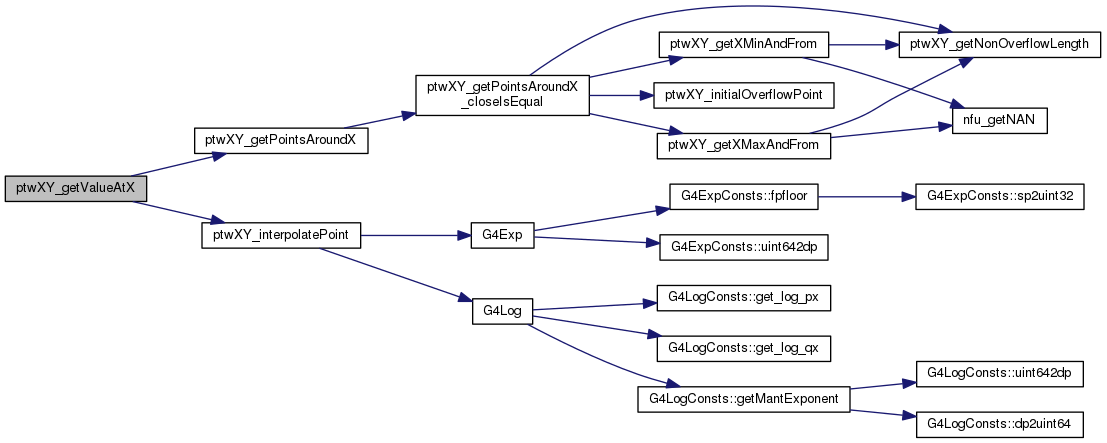
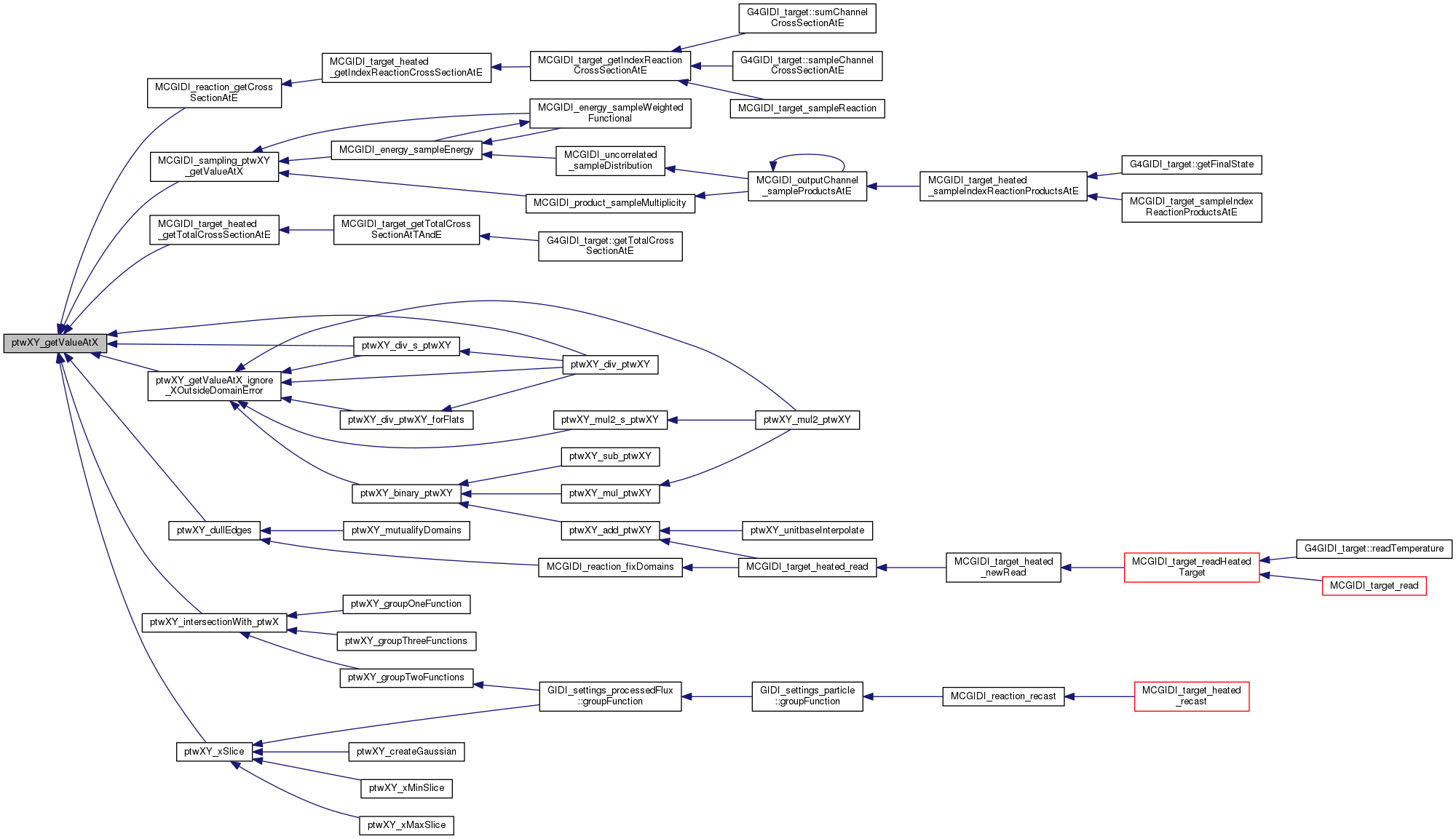
| double ptwXY_getXMax | ( | ptwXYPoints * | ptwXY | ) |
Definition at line 1239 of file ptwXY_core.cc.


| double ptwXY_getXMaxAndFrom | ( | ptwXYPoints * | ptwXY, |
| ptwXY_dataFrom * | dataFrom | ||
| ) |
Definition at line 1215 of file ptwXY_core.cc.


| double ptwXY_getXMin | ( | ptwXYPoints * | ptwXY | ) |
Definition at line 1206 of file ptwXY_core.cc.


| double ptwXY_getXMinAndFrom | ( | ptwXYPoints * | ptwXY, |
| ptwXY_dataFrom * | dataFrom | ||
| ) |
Definition at line 1182 of file ptwXY_core.cc.

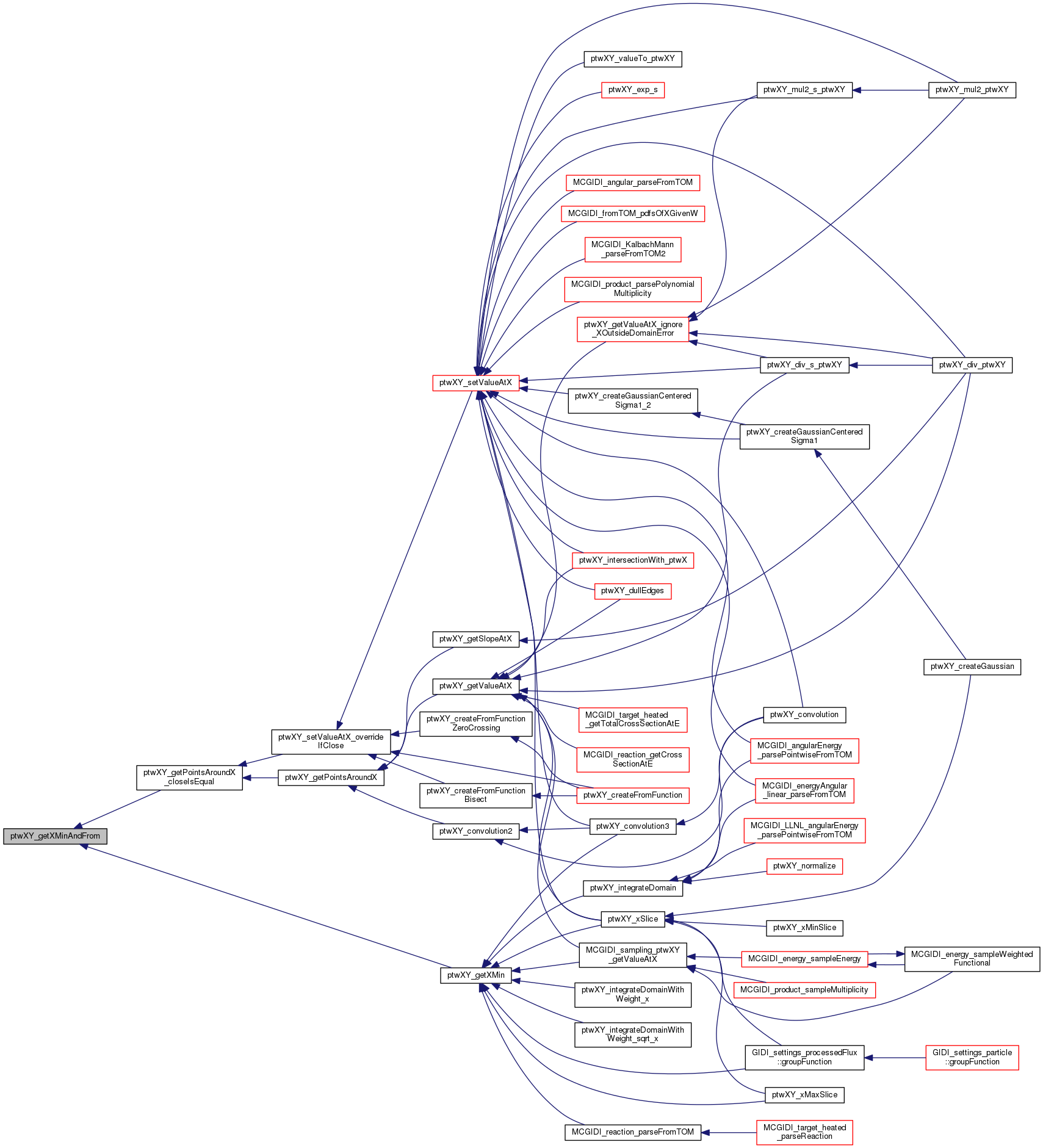
| nfu_status ptwXY_getXYPairAtIndex | ( | ptwXYPoints * | ptwXY, |
| int64_t | index, | ||
| double * | x, | ||
| double * | y | ||
| ) |
Definition at line 698 of file ptwXY_core.cc.


| double ptwXY_getYMax | ( | ptwXYPoints * | ptwXY | ) |
Definition at line 1269 of file ptwXY_core.cc.


| double ptwXY_getYMin | ( | ptwXYPoints * | ptwXY | ) |
Definition at line 1248 of file ptwXY_core.cc.


|
static |
| int64_t ptwXY_length | ( | ptwXYPoints * | ptwXY | ) |
|
static |
Definition at line 991 of file ptwXY_core.cc.


| nfu_status ptwXY_mergeFromXsAndYs | ( | ptwXYPoints * | ptwXY, |
| int | length, | ||
| double * | xs, | ||
| double * | ys | ||
| ) |
Definition at line 966 of file ptwXY_core.cc.

| nfu_status ptwXY_mergeFromXYs | ( | ptwXYPoints * | ptwXY, |
| int | length, | ||
| double * | xys | ||
| ) |
Definition at line 973 of file ptwXY_core.cc.

| ptwXYPoints* ptwXY_new | ( | ptwXY_interpolation | interpolation, |
| ptwXY_interpolationOtherInfo const * | interpolationOtherInfo, | ||
| double | biSectionMax, | ||
| double | accuracy, | ||
| int64_t | primarySize, | ||
| int64_t | secondarySize, | ||
| nfu_status * | status, | ||
| int | userFlag | ||
| ) |
Definition at line 29 of file ptwXY_core.cc.


| nfu_status ptwXY_reallocateOverflowPoints | ( | ptwXYPoints * | ptwXY, |
| int64_t | size | ||
| ) |
Definition at line 439 of file ptwXY_core.cc.


| nfu_status ptwXY_reallocatePoints | ( | ptwXYPoints * | ptwXY, |
| int64_t | size, | ||
| int | forceSmallerResize | ||
| ) |
Definition at line 410 of file ptwXY_core.cc.

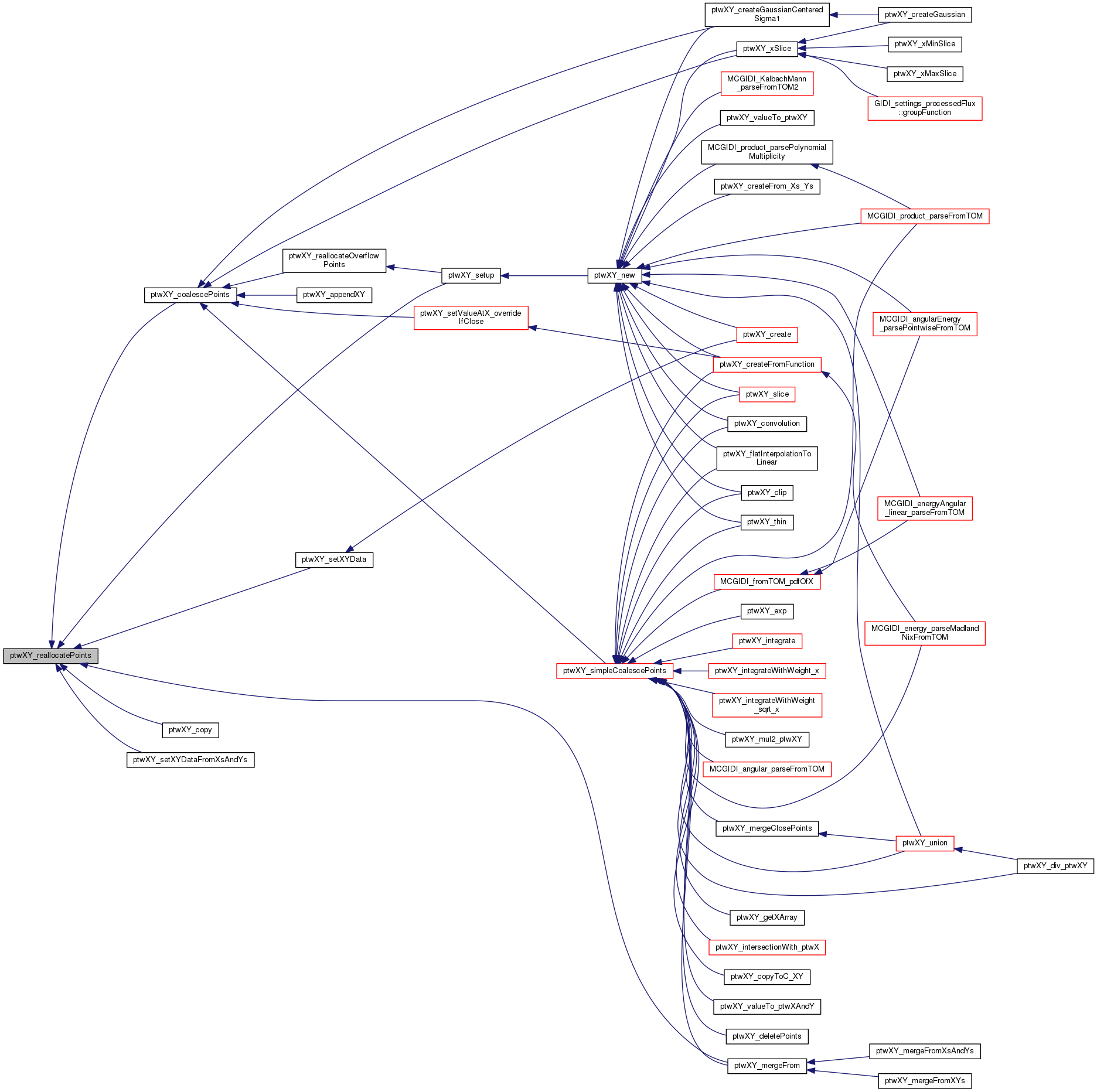
| nfu_status ptwXY_release | ( | ptwXYPoints * | ptwXY | ) |
Definition at line 549 of file ptwXY_core.cc.

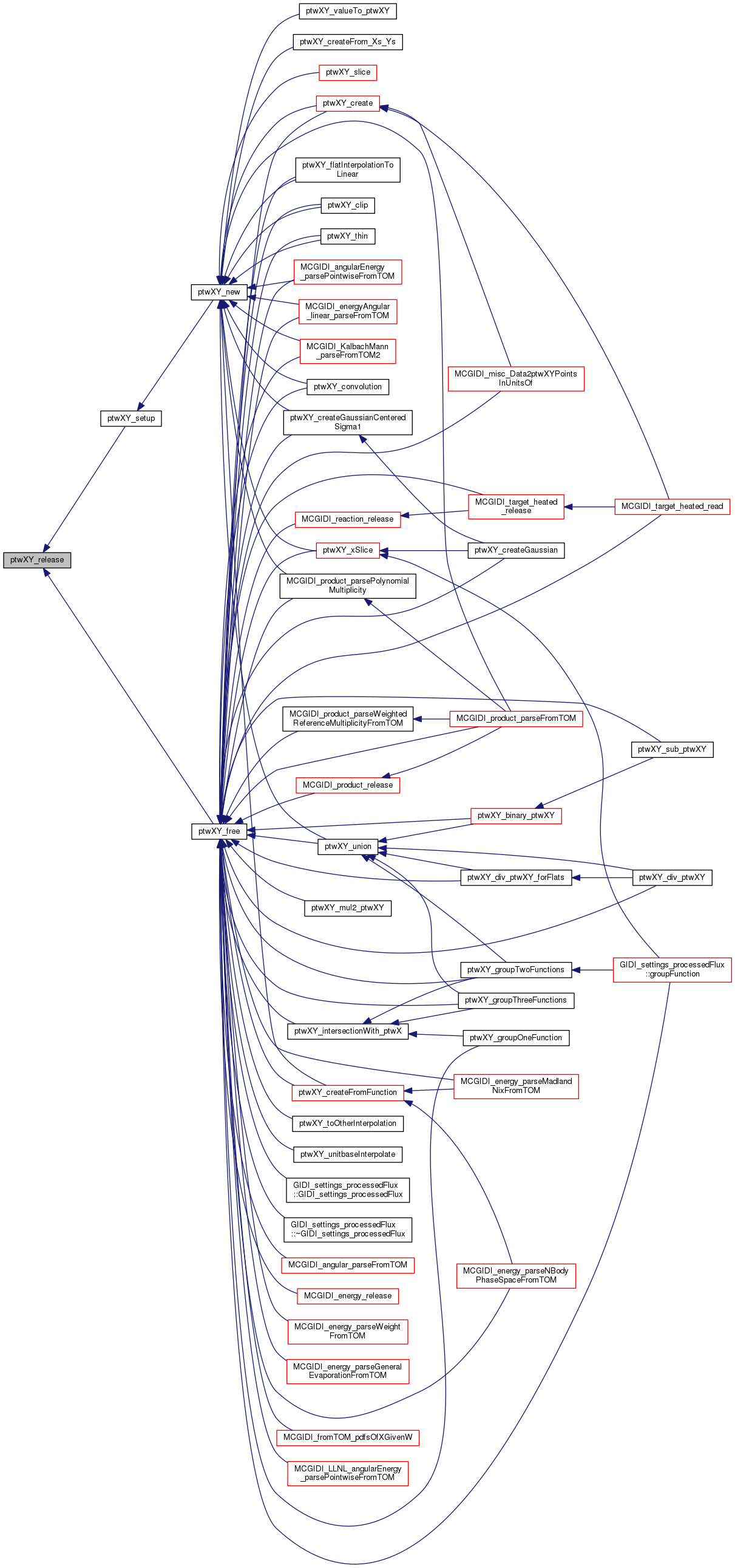
| double ptwXY_setAccuracy | ( | ptwXYPoints * | ptwXY, |
| double | accuracy | ||
| ) |
| double ptwXY_setBiSectionMax | ( | ptwXYPoints * | ptwXY, |
| double | biSectionMax | ||
| ) |
| nfu_status ptwXY_setup | ( | ptwXYPoints * | ptwXY, |
| ptwXY_interpolation | interpolation, | ||
| ptwXY_interpolationOtherInfo const * | interpolationOtherInfo, | ||
| double | biSectionMax, | ||
| double | accuracy, | ||
| int64_t | primarySize, | ||
| int64_t | secondarySize, | ||
| int | userFlag | ||
| ) |
Definition at line 46 of file ptwXY_core.cc.

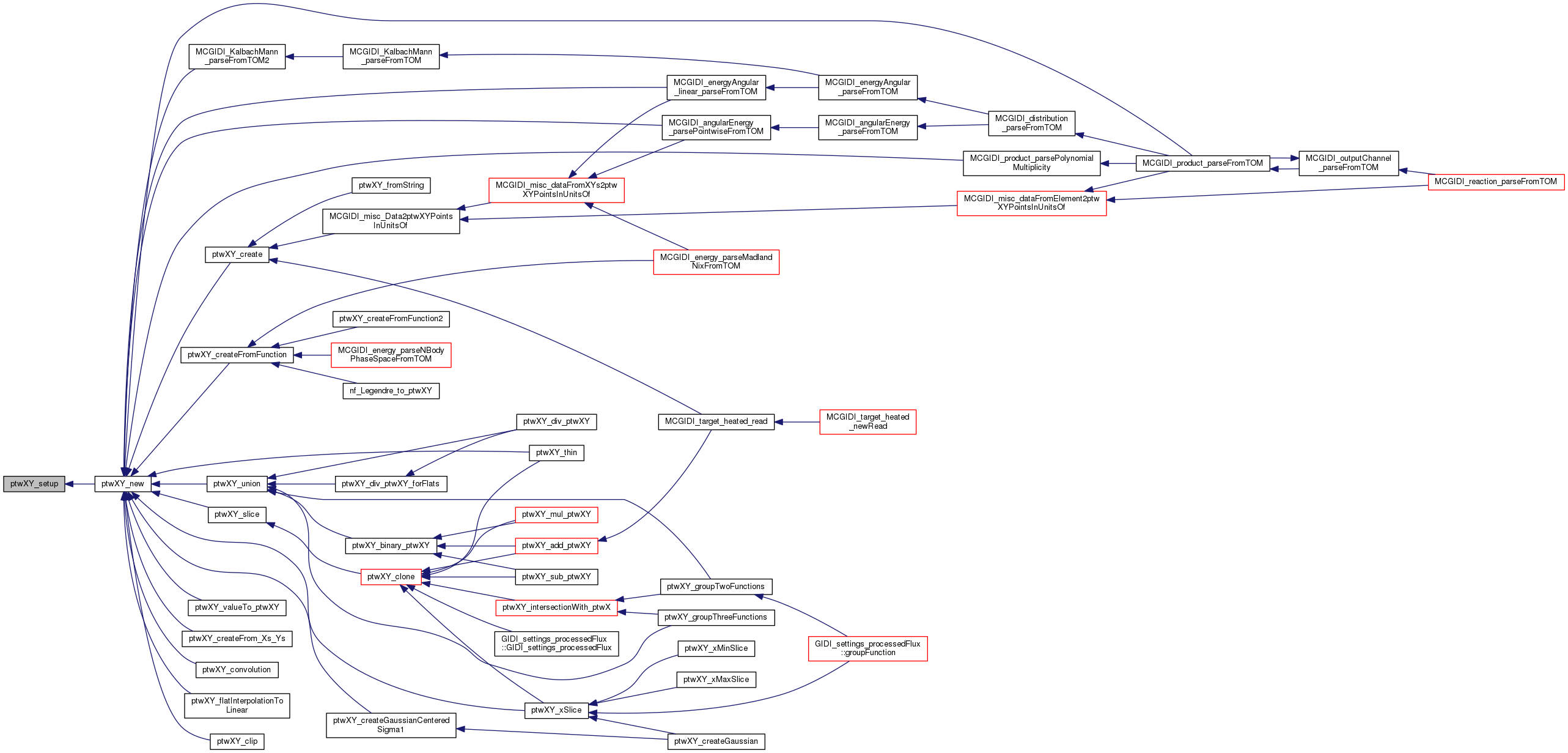
| void ptwXY_setUserFlag | ( | ptwXYPoints * | ptwXY, |
| int | userFlag | ||
| ) |
| nfu_status ptwXY_setValueAtX | ( | ptwXYPoints * | ptwXY, |
| double | x, | ||
| double | y | ||
| ) |
Definition at line 876 of file ptwXY_core.cc.

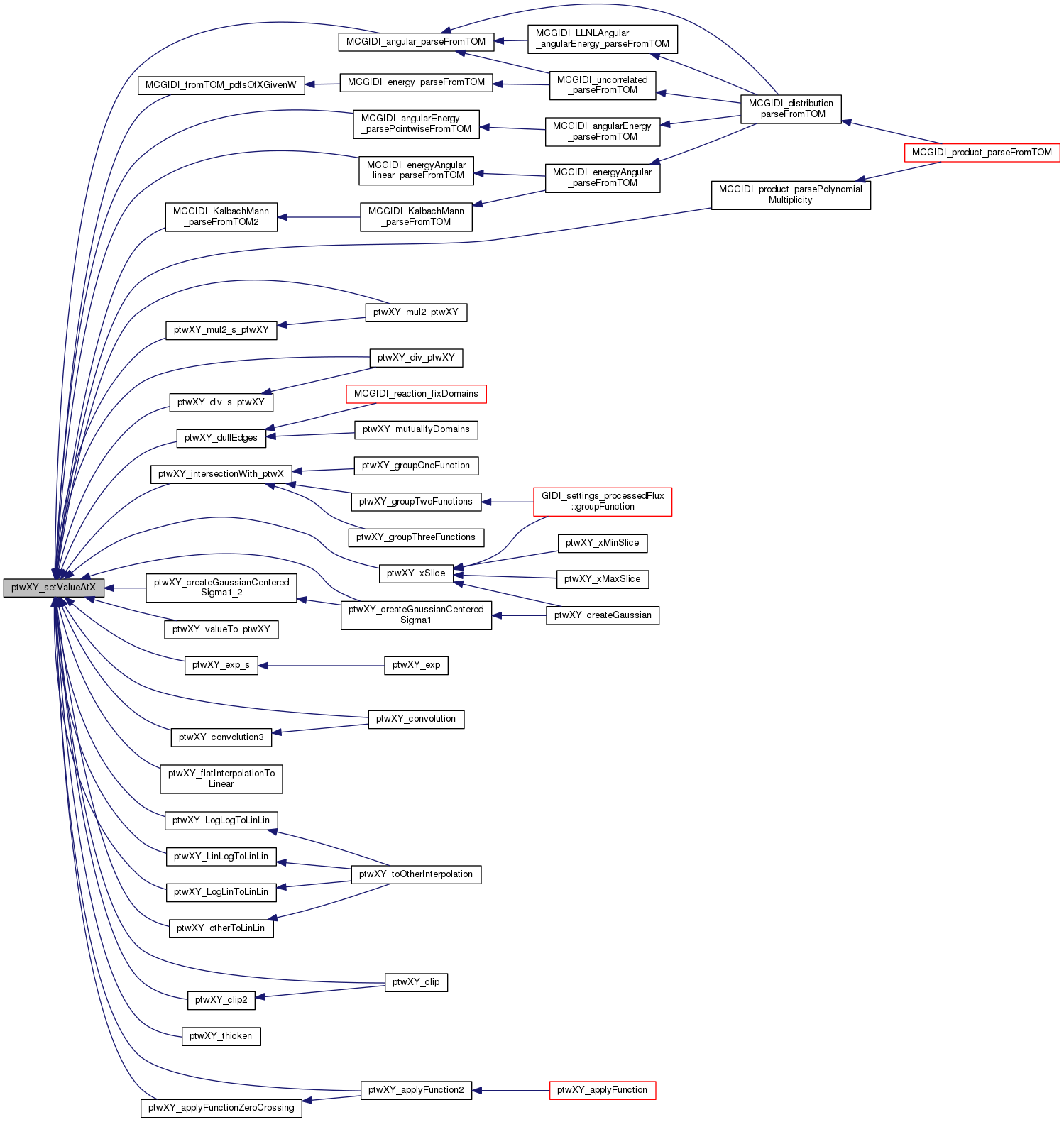
| nfu_status ptwXY_setValueAtX_overrideIfClose | ( | ptwXYPoints * | ptwXY, |
| double | x, | ||
| double | y, | ||
| double | eps, | ||
| int | override | ||
| ) |
Definition at line 883 of file ptwXY_core.cc.

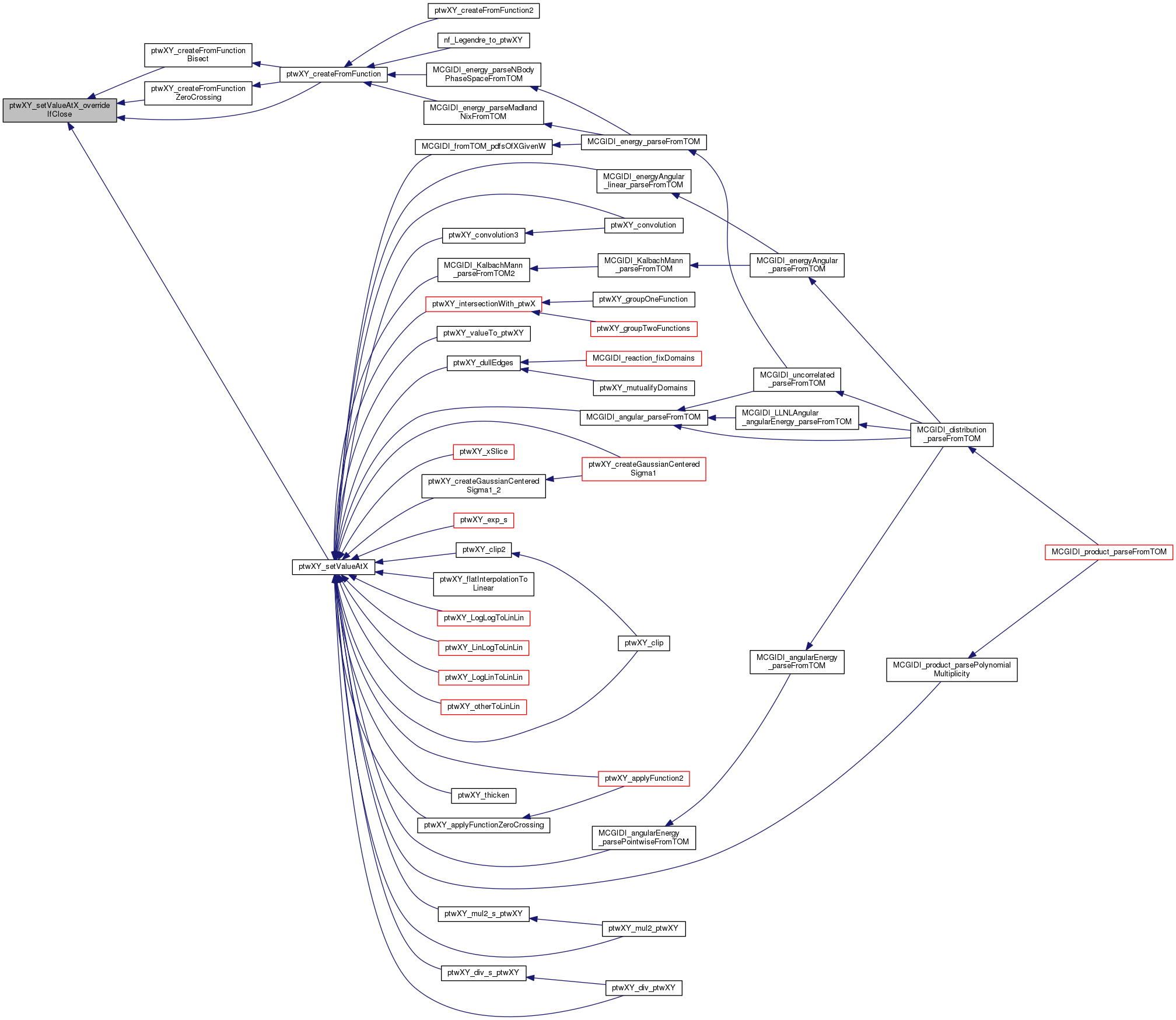
| nfu_status ptwXY_setXYData | ( | ptwXYPoints * | ptwXY, |
| int64_t | length, | ||
| double const * | xy | ||
| ) |
Definition at line 597 of file ptwXY_core.cc.


| nfu_status ptwXY_setXYDataFromXsAndYs | ( | ptwXYPoints * | ptwXY, |
| int64_t | length, | ||
| double const * | x, | ||
| double const * | y | ||
| ) |
Definition at line 631 of file ptwXY_core.cc.

| nfu_status ptwXY_setXYPairAtIndex | ( | ptwXYPoints * | ptwXY, |
| int64_t | index, | ||
| double | x, | ||
| double | y | ||
| ) |
Definition at line 1098 of file ptwXY_core.cc.
| nfu_status ptwXY_simpleCoalescePoints | ( | ptwXYPoints * | ptwXY | ) |
Definition at line 529 of file ptwXY_core.cc.


| ptwXYPoints* ptwXY_slice | ( | ptwXYPoints * | ptwXY, |
| int64_t | index1, | ||
| int64_t | index2, | ||
| int64_t | secondarySize, | ||
| nfu_status * | status | ||
| ) |
Definition at line 248 of file ptwXY_core.cc.

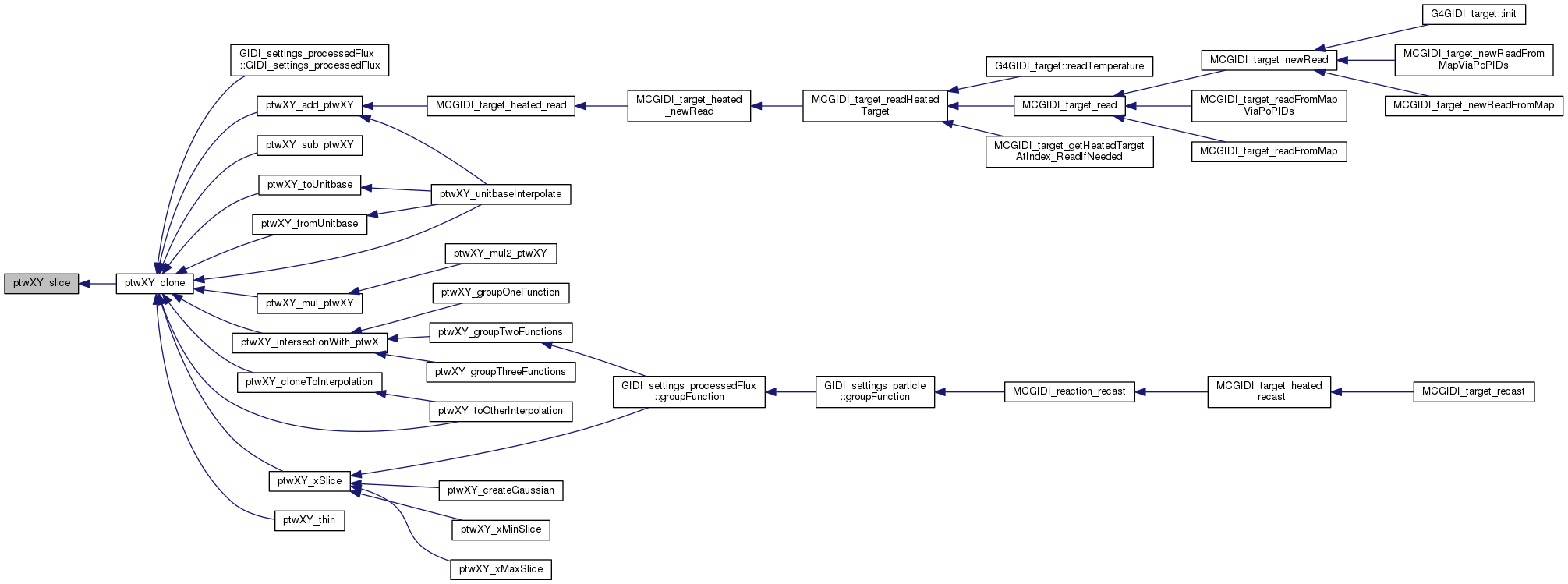
| ptwXYPoints* ptwXY_xMaxSlice | ( | ptwXYPoints * | ptwXY, |
| double | xMax, | ||
| int64_t | secondarySize, | ||
| int | fill, | ||
| nfu_status * | status | ||
| ) |
Definition at line 326 of file ptwXY_core.cc.
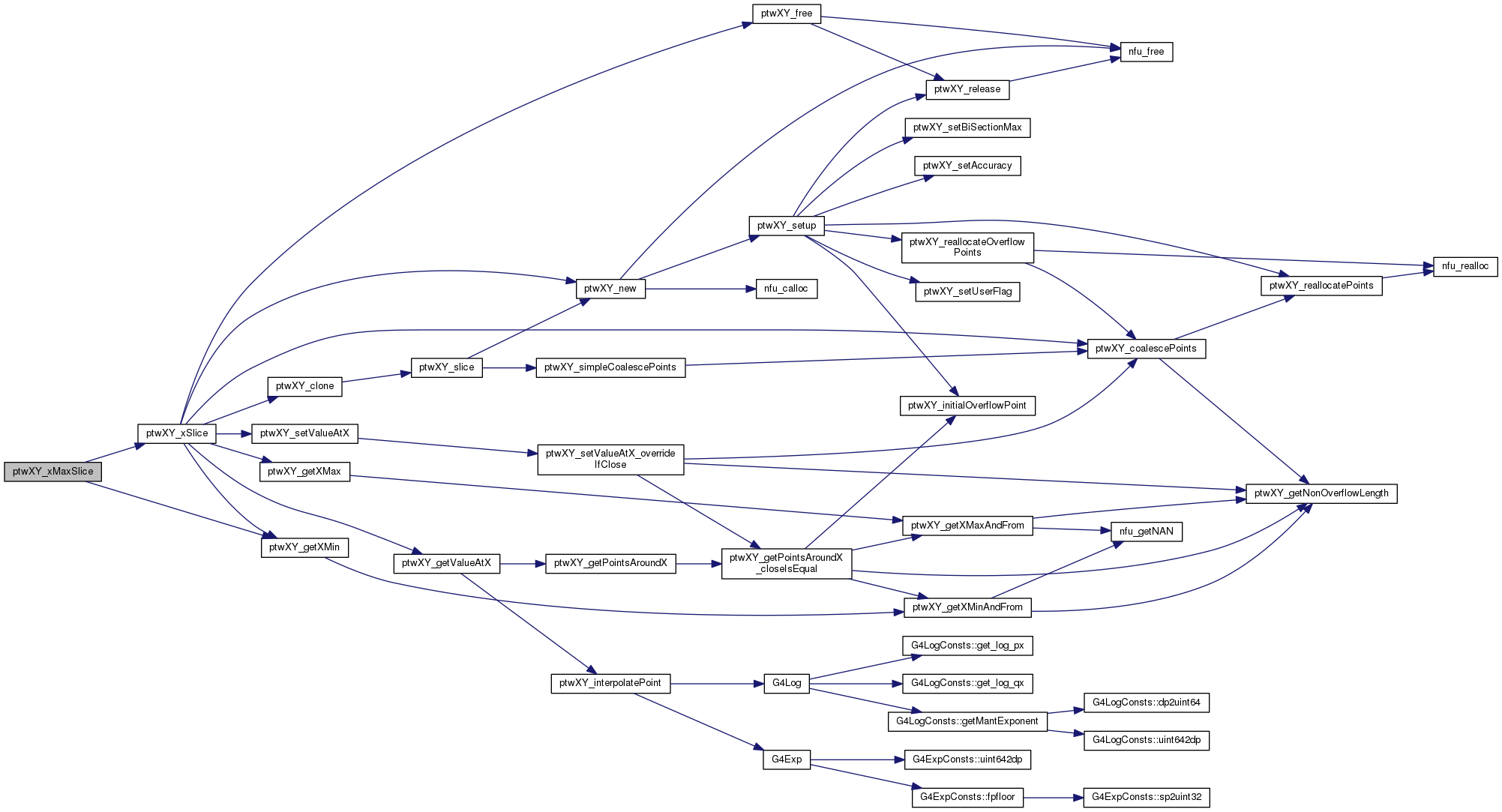
| ptwXYPoints* ptwXY_xMinSlice | ( | ptwXYPoints * | ptwXY, |
| double | xMin, | ||
| int64_t | secondarySize, | ||
| int | fill, | ||
| nfu_status * | status | ||
| ) |
Definition at line 315 of file ptwXY_core.cc.

| ptwXYPoints* ptwXY_xSlice | ( | ptwXYPoints * | ptwXY, |
| double | xMin, | ||
| double | xMax, | ||
| int64_t | secondarySize, | ||
| int | fill, | ||
| nfu_status * | status | ||
| ) |
Definition at line 274 of file ptwXY_core.cc.
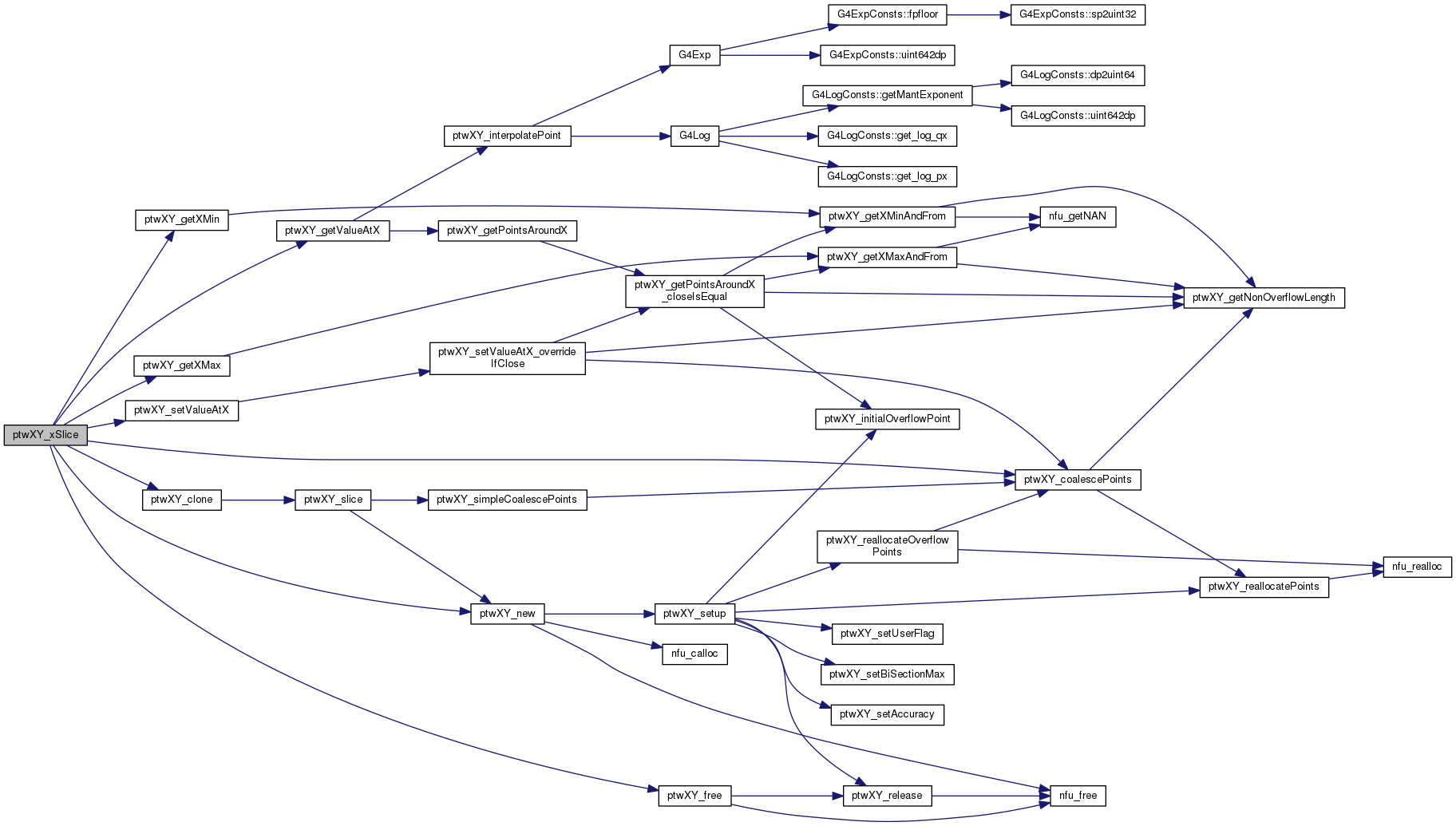

|
static |
Definition at line 21 of file ptwXY_core.cc.
|
static |
Definition at line 17 of file ptwXY_core.cc.
|
static |
Definition at line 18 of file ptwXY_core.cc.
|
static |
Definition at line 19 of file ptwXY_core.cc.
|
static |
Definition at line 20 of file ptwXY_core.cc.